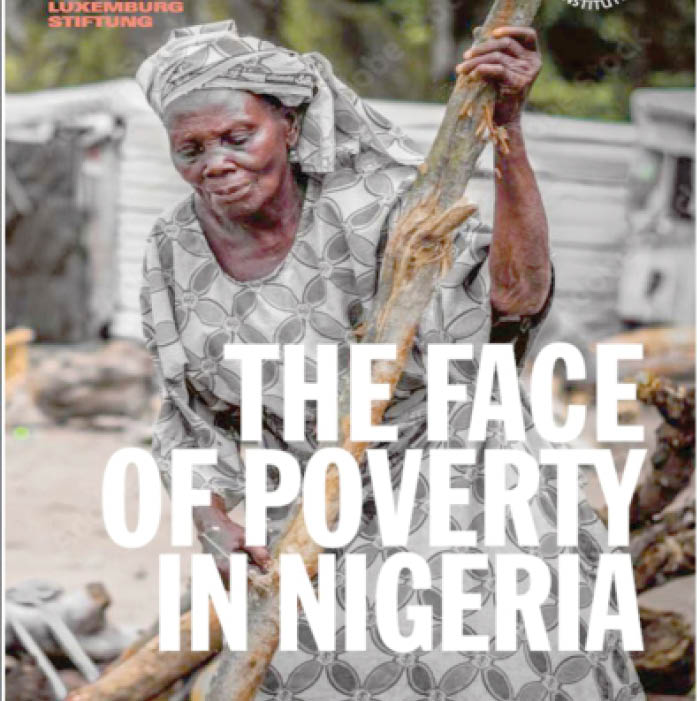[ad_1]
The removal of fuel subsidies by the current government led to a significant hike in fuel prices, which had serious repercussions on the economy, particularly on the most vulnerable populations. The increase has indeed had devastating effects on the economy and the people. In the first place, the hike in fuel prices led to increased transportation costs, affecting the livelihoods of many Nigerians who rely on public transportation to commute to work, school, or other essential destinations. This is even in addition to higher prices of goods and services, exacerbating inflation with attendant reduction in purchasing power; denying many Nigerians access to bare necessities like food, healthcare, and education.
The fuel price hike has particularly had a disproportionate impact on low-income households, pushing many further into poverty. These households often spend a significant portion of their income on fuel and transportation, leaving them with limited resources for other essential expenses.
What seems to be positive afterwards is that oil prices gradually decrease following increased competition among oil marketers. Unfortunately, prices of many goods and services, particularly those of transportation, have remained high, if not for some food stuff. It is imperative, therefore, for the Nigerian government to adopt a holistic approach to poverty reduction.
SPONSOR AD
I recall the president’s inaugural speech of May 29, 2023 in which he promised a red-blooded economy for Nigerians. In his words, Tinubu declared that:
“We shall remodel our economy to bring about growth and development through job creation, food security, and an end to extreme poverty. On the economy, we target a higher GDP growth and to significantly reduce unemployment.”
To achieve a robust economy, Tinubu said his industrial “policy will utilise the full range of fiscal measures to promote domestic manufacturing and lessen import dependency.”
And that “…electricity will become more accessible and affordable to businesses and homes alike. Power generation should nearly double and transmission and distribution networks improved.”
Considering the above promises, the government should consider a holistically comprehensive strategy to mitigate the effects of the fuel price hike and address the root causes of poverty. This can be done by, among others, encouraging public transporters and others to reduce their prices in line with decreasing oil prices, ensuring that the benefits of price reductions are passed on to consumers. This can be accomplished through regulations, incentives, or in consultation with private sector stakeholders.
Besides, targeted social protection programmes to support low-income households, such as cash transfers, subsidies for essential goods and services, and other forms of assistance can well be implemented with adequate supervision. These programmes can help households cope with the impact of economic shocks and improve their overall well-being.
The government can also do more in the area of infrastructure development; roads, public transportation, and energy should be improved to facilitate economic growth and reduce costs. This can also improve the quality of life for Nigerians, particularly in rural areas.
Additionally, policies to stimulate job creation, particularly in sectors that benefit from decreased oil prices, such as manufacturing and agriculture, should be executed. This can help reduce unemployment, increase incomes, and improve living standards.
A comprehensively holistic approach to poverty reduction can address the root causes of poverty; the government can reduce poverty rates and improve living standards. This can be achieved through a combination of economic growth, social protection, and infrastructure development. It can equally stimulate economic growth, increase economic activity, and attract investments. This can create new opportunities for businesses, entrepreneurs, and workers, driving economic progress and development.
Again, by supporting vulnerable populations, the government can promote social stability and reduce the risk of social unrest. This can be achieved through targeted social protection programmes, job creation initiatives, and other forms of support.
It is high time the government took a proactive approach to poverty reduction, ensuring that the benefits of economic growth are shared by all. I recommend, therefore, that a thorough assessment of the impact of the fuel price hike on different segments of the population, particularly the most vulnerable, should be conducted, in a similar manner that a comprehensive poverty reduction strategy that addresses the root causes of poverty and includes a range of interventions, such as social protection, economic diversification, infrastructure development, and job creation should be conducted.
Also, the government should engage with stakeholders, including civil society organisations, private sector stakeholders, and international partners, to leverage resources, expertise, and support; establish a system to monitor and evaluate progress, making adjustments as needed to ensure that the strategy is effective in reducing poverty and improving living standards.
Yet, the government should regulate prices to ensure that the benefits of decreasing oil prices are passed on to consumers. It should implement targeted social protection programmes to support low-income households; invest in diversifying the economy to reduce dependence on oil for the overall development of the Nigerian nation.
Alawode is an Agricultural Economist and resides in Odeomu, Osun State
Do you want to share a story with us? Do you want to advertise with us? Do you need publicity for a product, service, or event? Contact us on WhatsApp +2348183319097 Email: platformtimes@gmail.com
We are committed to impactful investigative journalism for human interest and social justice. Your donation will help us tell more stories. Kindly donate any amount HERE




